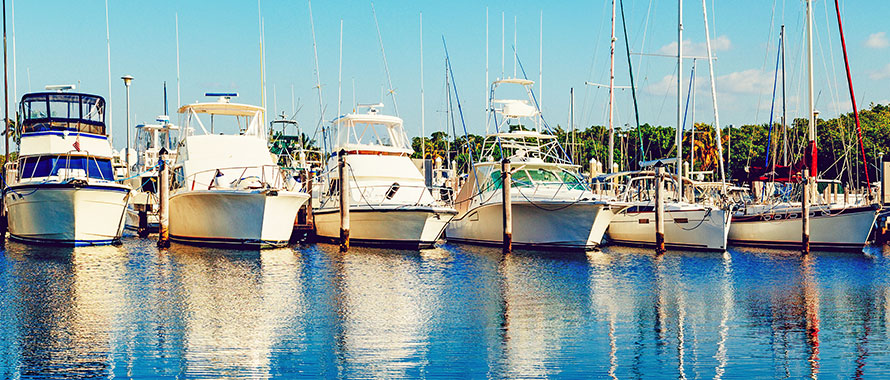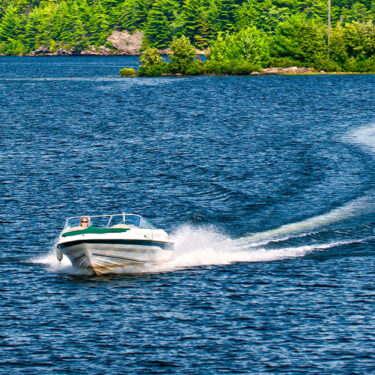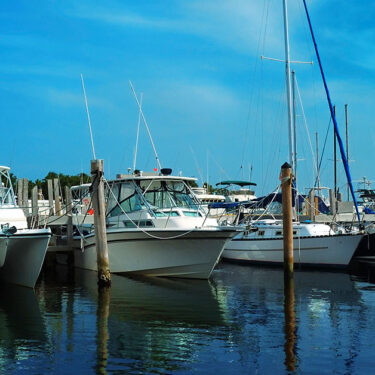As recreational boating season kicks into high gear around the country, new statistics are a reminder to play it safe, especially in states like Florida where more people are out on the water.
Reports show that Florida leads the nation in boating accidents and the number of fatalities is on the rise, followed by Texas, California, and Missouri, the Citrus County Chronicle reported on May 29.
Featured Solutions
“That would be in line with what I see,” said Craig Anderson, Underwriter, Marine & Yacht, Burns & Wilcox, Miami, Florida, noting that it’s likely that more accidents happen in Florida because of the high volume of boating in the state. But, he added, “Another issue is there are a lot of individuals who go out there and drink when they are on the boat, which is illegal, but unfortunately it is not always enforced.”

With the nature of boating, things can go south quickly. You want to prepare for the worst.
Inexperience also plays a major role, said Noah Wheeler, Broker, Marine, Burns & Wilcox, Miami, Florida. According to the FWC’s recent report, more than 40% of accidents were caused by operator inexperience or improper attention. From physical damage to the vessel to liability for injuries or deaths, the potential fallout from an accident makes Recreational Marine Insurance critical for boat owners.
“With the nature of boating, things can go south quickly,” Wheeler said. “You want to prepare for the worst.”
Boating accidents often severe, high liability limits needed
According to the U.S. Coast Guard, recreational boating accidents in the U.S. totaled 4,040 in 2022, causing 636 deaths, 2,222 injuries and about $63 million in property damage. Of the boating-related deaths, 73% were due to drowning, 16% listed alcohol use as the leading factor in the boating accident, and collisions were the “first event” in 21% of deaths.
“When there is a claim or an accident, it is usually bad,” Wheeler explained. While minor fishing-hook accidents and slip-and-falls on the deck do occur, collisions and other major incidents on the water represent some of the most significant risks boat owners face — and why they should carefully consider their liability limits, he said. “When there is a real issue, it is often bad as far as damage to other property, injuries, or someone drowning. You want to have enough liability insurance.”
Recreational Marine Insurance includes two primary types of coverage: Hull and Machinery Insurance, which covers physical damage to the boat and its engine; and Protection and Indemnity (P&I) Insurance, which provides liability coverage for third-party bodily injuries and property damage. Many boat owners carry $1 million in liability coverage, but even higher limits may be needed.
“Ultimately, if someone dies, it is going to go all the way through that limit,” Wheeler said. “You want to make sure the third-party liability limit is adequate.”
Liability limits should always be equal to or greater than the value of the hull that is being insured, Anderson pointed out, and a boat owner’s assets should be taken into consideration when selecting liability limits. “Not only the boat but their house, cars and any other assets,” he said. “If there is a lawsuit, they may try to attach onto those other assets.”
Boat owners should also be aware that Hull and Machinery Insurance limits are based on the amount that was invested into the vessel, Anderson said. “That does not mean it is going to be the fair market value or the appraised value or the surveyed value,” he said.
Instead, “whatever you paid for the vessel is what you are going to get insured for,” Wheeler added, noting that owners should also ask their insurance broker about Uninsured Boater Insurance. When it comes to Recreational Marine Insurance, Wheeler said, “it is important to have a marine specialist as your broker” to walk you through the necessary coverages and potential exclusions.
Florida a hotspot for new boaters
In the early months of the COVID-19 pandemic, boat sales surged as families sought out safe outdoor activities, CNBC reported in March of 2021. Low interest rates also encouraged this trend, Anderson said. “There was a huge surge of new purchases of boats,” he said.
Florida is a natural hotspot for new boaters, especially as more individuals have moved to the state in recent years. In 2022, Florida was among the fastest-growing states for new residents, CBS News reported earlier this year. “You have more individuals moving down here, and many of them want to do the whole ‘Florida thing’ and buy the boat — but they may not have the experience,” Wheeler said. “That could mean a lot of new boaters essentially coming to Florida, but even if you have been a Florida resident your whole life, that does not mean you have boating experience.”
In the FWC’s 2022 Boating Accident Statistical Report, lack of boater education was a contributing factor in many accidents, and 70% of operators involved in fatal accidents had no formal boater education. According to Anderson, some insurance carriers will have a “captain warranty” on a Recreational Marine Insurance policy, requiring the owner to be trained by a professional captain for a set number of hours. “This is a factor that goes into the policy that a lot of individuals do not consider,” he said.
New boaters should also understand the risk when moving from a smaller vessel to a larger one. In addition to facing difficulties obtaining insurance for a much larger vessel, they should also consider the differences in how it will operate. “The bigger the boat, the more inertia, and you have to allow more reactive time,” Anderson said. “That can contribute to a lot of accidents.”
In recent days, boating incidents in Florida included a man who was arrested in Madeira Beach on May 30 for operating a fishing boat while impaired; the man was found passed out behind the wheel of his vessel, with his boat headed toward swimmers, KIRO 7 reported. During the recent Memorial Day weekend, FWC officers responded to more than 30 boating accidents and around 100 hazardous boat operators, but no fatalities were reported over the busy holiday, according to the Sebastian Daily.
Many recreational boating accidents are “a mix of impairment or inexperience,” Anderson said. “A lot of individuals think if you can drive a car then you can drive a boat, but it is a completely different animal,” he said, encouraging all boat owners to look into obtaining a captain’s license. “That would be the minimum I would recommend, as well as some training under a professional captain. In some circumstances with Recreational Marine Insurance, that is a requirement.”
Check for exclusions, take it slow
After Hurricane Ian hit Florida in the fall of 2022, the state’s FWC indicated that 700 or more boats were displaced due to the storm, CBS News reported in January. Hurricanes and other severe weather events are an important consideration for boat owners, especially since many Recreational Marine Insurance policies will exclude wind damage.
“A lot of insurance carriers are not offering wind coverage for these policies in most of Florida,” Wheeler explained. “If they are offering wind, it may be very expensive.”

A lot of insurance carriers are not offering wind coverage for these policies in most of Florida. If they are offering wind, it may be very expensive.
In many cases, Anderson said, weather events will be excluded anytime it is a named or numbered windstorm. “If the damage that is resultant from that and there is no windstorm coverage on the policy, there is no coverage. It is a huge issue right now,” he said.
Recreational Marine Insurance policies may also have varying rules on chartering operations. If an owner plans to offer their vessel for charters, whether on a full- or part-time basis, they should discuss it with their insurance broker. New rules from the FWC require that any fare-paying passenger has a minimum amount of liability insurance, Anderson noted.
“They would have to check with their particular carrier to make sure their coverage is acceptable,” he said. “If they plan to do any type of chartering or have fare-paying passengers on board, they will need to ensure they are in compliance.”
For anyone involved in recreational boating, Anderson would recommend “as much training as possible.” Wheeler agreed, encouraging vessel owners to take it slow.
“Pay attention to your surroundings, know your boating laws and signs, and go slow,” he said. “You probably should not invite everyone you know out on the boat the first time you take it out.”







